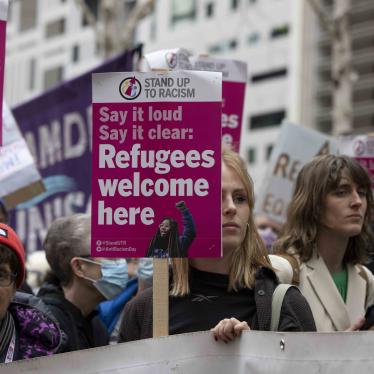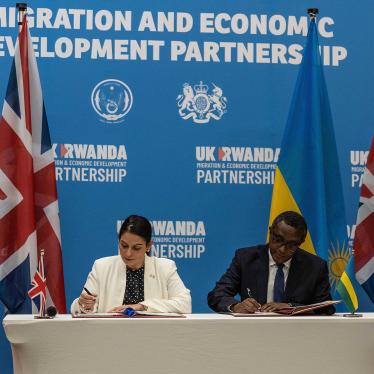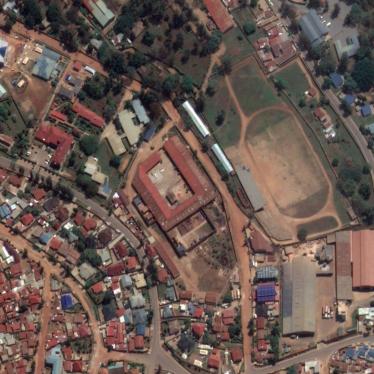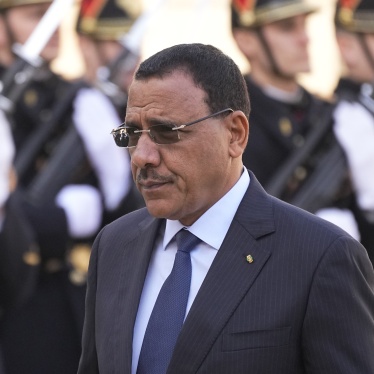June 11, 2022
Dear Home Secretary,
Re: UK-Rwanda Asylum Partnership Arrangement and Expulsions to Rwanda
We are writing to express our grave concerns with the UK government’s plan to expel to Rwanda people seeking asylum in the UK through irregular routes, in accordance with the Asylum Partnership Arrangement, and to strongly urge the government to rescind the scheme and not proceed with the first removals scheduled for June 14, 2022.
Asylum seekers sent to Rwanda will be processed under Rwanda’s asylum system and, if recognised as refugees, granted refugee status there, with Rwanda otherwise handling rejected claims. As a matter of principle, such expulsions and denial of access to asylum on its own territory is a clear abrogation of the UK’s international responsibilities and obligations to asylum seekers and refugees. The UK is seeking to entirely shift its asylum responsibilities onto another country, acting against the object and purpose of the 1951 Refugee Convention (a convention the UK helped draft) and its commitments to global responsibility sharing, and threatening the international refugee protection regime.
Rwanda cannot be considered a safe third country to send asylum seekers to, with Human Rights Watch and other actors, including the United States Government, having routinely reported on the serious human rights violations in Rwanda. The UK government is aware of this, having denounced Rwanda’s human rights record just last year during its Universal Periodic Review at the Human Rights Council, urging “Rwanda to model Commonwealth values of democracy, rule of law, and respect for human rights”. Rwanda faced strong criticism from countries across all regions.
Since 1994 and the Rwandan genocide, Human Rights Watch has been monitoring, documenting, and assessing the human rights conditions in the country. To this day, serious human rights abuses continue to occur in Rwanda, including repression of free speech, arbitrary detention, ill-treatment, and torture by Rwandan authorities. This calls into question and severely undermines the government’s assessment of Rwanda as a safe country for asylum seekers and refugees to be sent to, as set out in its recently published country policy and information notes and equality impact assessment.
Arbitrary detention of poor and vulnerable people
Arbitrary detention, ill-treatment, and torture in official and unofficial detention facilities are commonplace in Rwanda. Since 2010, Human Rights Watch has extensively documented the use of unlawful detention and torture in safe houses and other facilities, such as Kami military camp, Kwa Gacinya and Gikondo Transit Center, and requested that they be closed. The rounding up, arbitrary detention, and ill-treatment in Gikondo by the Rwandan authorities of street children, street vendors, sex workers, homeless people, and beggars has been well-documented by Human Rights Watch since 2006, and condemned by the United Nations Committee on the Rights of the Child in February 2020. The UK government recognises in its assessment of Rwanda that there are reports of persons described as “delinquents” being arbitrarily detained, but notes that these trace back to our 2020 report on Rwanda’s abusive detention of street children. Based on our experience and knowledge of this issue, having tracked it for over 15 years, and the compelling evidence accumulated of the authorities' behaviour, we have no doubt that there is a real risk that the poor and others accused of “deviant” behaviours, including asylum seekers, could be subject to similar patterns of abuse.
Free speech violations, arbitrary detention and torture
The UK government asserts that, notwithstanding some restrictions on freedom of speech or freedom of association, it is unlikely that asylum seekers sent to Rwanda would face a real risk of being subjected to treatment contrary to Article 3 of the European Convention on Human Rights. The government states that after consulting sources and reviewing open-source material they are satisfied that asylum seekers or refugees are not specifically targeted. In summarily dismissing evidence that refugees have indeed been abused, the government asserts that it “does not appear to be a common or regularly repeated situation”. Such an assessment mischaracterises the reality in Rwanda where refugees have faced abuse for peacefully protesting their conditions. In 2018, at least twelve refugees from the Democratic Republic of Congo died after police fired live ammunition at the unarmed refugees who were protesting a cut to food rations. Rwandan police arrested over 60 refugees and tried them for participating in illegal demonstrations, rebellion and spreading false information to create a “hostile international opinion” of Rwanda, a criminal offence in Rwanda's Penal Code. As one Burundian refugee living in Rwanda summed it up, “Life in Rwanda is ok as long as you keep your mouth shut.”
We are deeply concerned that asylum seekers will be at risk of abuse if they speak up about their treatment or conditions in Rwanda, or could be forced to self-censor, including before the proposed Monitoring Committee, envisaged under the Asylum Partnership Arrangement. The space for political opposition, civil society and media is closed, with the Rwandan government continuing to stifle dissenting and critical voices and to target those perceived as a threat to the government and their family members. In March 2022, we reported on the ongoing persecution of journalists and social media commentators, including the disappearance, arrests, or threats against several high-profile critics, opposition members and commentators using social media or YouTube to express themselves.
On May 30, a well-known commentator, jailed for his criticism of Rwanda’s ruling party, told the courts he was being tortured in prison, through beatings and sleep deprivation. The judge ignored the allegations and failed to order any investigation into the allegation, as is often the case in Rwanda. Previously, in March 2021, Human Rights Watch documented the ongoing pattern of threats against, prosecutions and a suspicious disappearance of individuals speaking out on current affairs topics and criticizing public policies.
The judiciary’s lack of independence and failure to investigate abuse
The Rwandan judiciary suffers from a lack of independence, due to government manipulation of the justice system, and fair trial standards are routinely flouted, particularly in politically sensitive cases. Human Rights Watch has monitored several trials where defendants said they were tortured into signing confessions after their arrest, or that their privileged communications with their lawyer were being intercepted. Judges failed to order investigations into the allegations on every occasion.
The Rwandan government consistently fails to conduct effective investigations into allegations of extrajudicial executions, enforced disappearances, deaths in custody, arbitrary detention, torture and ill-treatment, or to prosecute alleged perpetrators. This is not surprising, and unlikely to change, given the credible evidence of state security force involvement in these abuses. This has created a climate of fear among the population, and impunity among abusers. Notably, authorities have failed to conduct a credible investigation and ensure accountability for the death in police custody of well-known activist and singer Kizito Mihigo. In many cases, Rwandan authorities have actively obstructed justice by targeting victims and witnesses to prevent them from seeking justice.
Despite these ongoing abuses, the UK government asserts that the right to a practical and effective remedy exists in Rwanda. Given the politically sensitive context of the arrangement between the UK and Rwandan governments, and Rwanda’s track record, it is unlikely that Rwandan authorities would effectively investigate any potential allegations of mistreatment of asylum seekers, or that the judicial system is sufficiently independent to provide the necessary oversight of and accountability for government actions.
We also have serious doubts about the ability of the proposed Monitoring Committee to effectively monitor human rights abuses. In 2018, the United Nations Sub-Committee on the Prevention of Torture was forced to cancel its visit to Rwanda – the first time it has ever done so – citing obstruction by the authorities and fear of reprisals against interviewees. They have not since returned.
Abuses against and risks for LGBT people
In 2021, we documented how the authorities arbitrarily detained, harassed, insulted and beat nine transgender or gay people at Gikondo Transit Center in Kigali. Those interviewed said they had been targeted due to their sexual orientation or gender identity and treated worse than other detainees, with police officers or guards accused them of being homeless, thieves, or delinquents and held them in a room reserved for “delinquent” men. In practice, lesbian, gay, bisexual, and transgender people face stigma in Rwanda. In light of this, asylum seekers and refugees of this profile are at particular risk. Yet, the UK government asserted that the treatment of persons based on their sexual orientation and gender identity or expression is not sufficiently serious in Rwanda to amount to a real risk of ill-treatment contrary to Article 3, while noting that the situation may be different for trans persons.
Assessment of Rwanda as a safe country
We have carefully considered the details of the Asylum Partnership Arrangement and it remains unclear how the UK government performed its assessment and reached its conclusion that Rwanda meets the criteria of a safe third country to expel asylum seekers to. This is especially so given the stifling of dissent and critical voices and the fact that independent civil society and media outlets face harassment, attacks and threats, leading in some cases to self-censorship, while the repressive and closed space means that human rights organisations, including Human Rights Watch, experience immense obstacles in undertaking research on the ground in Rwanda. This calls into question the credibility of the government’s assessment.
Human Rights Watch is of the view that Rwanda is not a safe third country based on its in-country research and evidence set out above, and that, given the context, there is no way to implement effective monitoring to ensure asylum seekers expelled there are not victims of human rights violations.
We thank you for your consideration.
Yours sincerely,
Yasmine Ahmed
UK Director
Human Rights Watch
Lewis Mudge
Central Africa Director
Human Rights Watch







